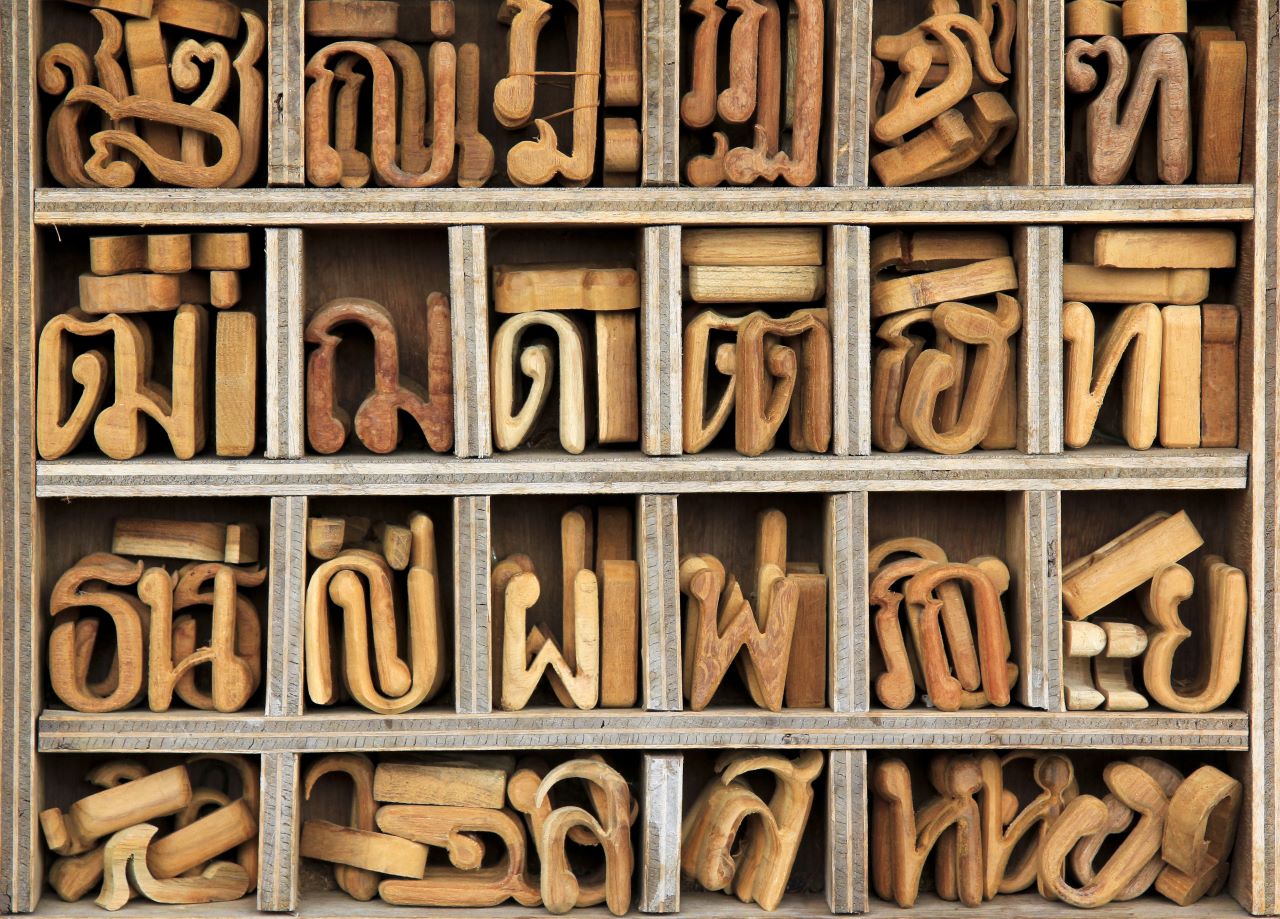Updated: April 5, 2025
Known as one of Asia’s best tropical destinations, Thailand is well-loved, not just for its breathtaking landscapes and sumptuous cuisine but also for its people, who are known for their friendly smiles, welcoming attitude, and eagerness to connect with visitors. The Thai people’s genuine hospitality is an essential foundation of the nation’s identity – an indelible mark that stays with anyone visiting the country.
Like in any travel adventure, one of the best ways to uncover the uniqueness and beauty of the destination is to share stories with the local people. And there’s no better way to do so than learning to converse with them using their native tongue, the Thai Language.
Whether you’re visiting some of Thailand’s famous beaches, exploring Phuket Old Town on foot, or dining at some of the finest restaurants in Koh Samui, it would be extremely useful to know some Thai words or phrases as you enjoy the beauty of the country.
Related article: Spotlight on Phuket Old Town

Thai Language: An Overview
The Thai language originated from the Tai language family, which has been used across Southern China, Northeast India, and Southeast Asia, including neighboring countries like Laos, Myanmar, Vietnam, and Malaysia.
The national language of Thailand, called Standard Thai, is based on a language spoken in central Thailand. However, local dialects and variations of Standard Thai also exist in other parts of the country, including Kammüang (Northern Thai) and Pak Tai (Southern Thai).
First-Person Pronouns: Choosing the Right One
Thai pronouns also carry nuances of politeness and formality. While English speakers use “I” universally, Thai has gender-specific first-person pronouns:
- Pŏm – Used by male speakers in polite speech
- Chăn – Used by female speakers, polite but slightly informal
For example, a man introducing himself might say, “Pŏm chue John” (I am John), while a woman would say, “Chăn chue Sarah.” Using the correct pronoun shows cultural awareness and helps create a positive impression.
Moreover, one of the most distinct features of Thai is its sentence-ending particles, which add politeness and help soften speech. These are essential for respectful communication, even when mixing Thai words with English.
- Krub – Used by male speakers
- Ka – Used by female speakers (the pronunciation differs based on context)
For instance, when saying “thank you,” a man would say “Kob khun krub”, while a woman would say “Kob khun ka”. These small additions make a big difference in sounding polite and respectful.
Handy Terms and Phrases to Use When Visiting Thailand
While Thais are proficient in English, there is something special about connecting with them through their local language. Beyond communication, learning key Thai phrases helps foster a deeper sense of connection and respect, and it also acts as a sign of genuine interest in learning more about their culture and traditions. In addition, learning to speak the local language also comes in handy in communicating specific needs like allergies, food preferences, cultural considerations, and even emergencies.
Learning key Thai phrases and expressions makes interactions with the locals much easier. It will also help boost confidence while strolling through the metropolis, visiting temples, or having a fun at any of their stunning beaches while staying at any of their stunning vacation villas in Phuket or the villas in Koh Samui. This also demonstrates respect and appreciation for their local customs.
Related articles: Temples Worth Visiting in Phuket, Thailand, Top 3 Temples to Visit in Koh Samui, Thailand
Phrases to Use in Casual Conversations
- Sa wat dee – Hello
- Sabai dee mai – How are you?
- Sabai dee – I’m fine
- Khop koon – Thank you
- Mai pen rai – No problem/It’s Alright
- Chai – Yes
- Mai Chai – No
- Mai khao jai – I do not understand
- Kor-tot – Excuse me/sorry
- Lah gon – Goodbye
- Kun chuu arai – What is your name?
- Rao chue _______ – My name is _____
Phrases to Use When Dining
- Kaw nam pow noi? – Can I have water?
- Hiu mai? – Are you hungry?
- Hiu – I’m hungry
- Ao phed-phed – I want it spicy
- Gin pet mai dai – I cannot eat spicy
- Aroi – Delicious
- Gin khao laew ruu yaang? – Have you eaten yet?
Phrases to Use for Directions
- Leu sai – Turn left
- Leu kwaa – Turn right
- Yoot – Stop
- Bai – Go
- Dtrong bpai – Go straight
- Chai meeta mai? – Do you use a meter?
- Khap chaa chaa noi – Please slow down
Phrases to Use When Shopping
- A nee tao rai? – How much is this?
- Phaeng – Expensive
- Ao a nee – I want this
- Chawp – I like it
- Mai chawp – I don’t like it
- Lod dai mai? – Can you give a discount?
- Mee See Eun Mai? – Do you have it in different colors?
Related articles: Top 10 Best Places to Go Shopping in Phuket, Where to Go Shopping in Koh Samui, Thailand
Other Practical Terms and Phrases
- Hongnaam yuu thee nai? – Where is the bathroom?
- Note: To know the directions to other places, replace the word “hongnaam” (bathroom) with the name of the place, such as raan a-haan (restaurant), rohng-raem (hotel), soo-nahm-been (airport), tuh-lat (market), raan kai yaa (pharmacy), rong-pa-ya-baan (hospital), or sa taa nii rot fai a (train station)
- Mee WiFi mai? – Do you have WiFi?
- Chan laek ngern tee nai dai bang – Where can I change money?
- Chan ja jong tua tee nai dai bang – Where can I book a tour?
- Chuai duai – Help me
Other Important Information When Speaking Thai
Alongside verbal greetings, Thais also use a gesture called “wai” as a sign of respect, especially when greeting someone. This is done by bringing the hands together in a prayer-like position (palms touching and fingers pointing upwards) by the chest or face. While in this position, the greeter should also bow the head slightly to offer respect and a welcoming demeanor. While foreign visitors are not required to initiate the wai, it is a good gesture to take note of and reciprocate when speaking with the locals, especially when visiting popular destinations.
Using “Khun” as a Respectful Form of Address
In Thai culture, addressing people properly is a sign of respect. A simple way to do this is by using “Khun” before a person’s name. This is similar to saying “Mr.” or “Ms.” in English, but it is used more frequently and across both formal and semi-formal settings. In professional or service-oriented environments, it is customary to refer to individuals with “Khun” as a polite and respectful gesture.
Even in casual interactions, adding “Khun” before a name helps maintain a courteous tone. Whether speaking to acquaintances, villa managers, or hotel staff, using “Khun” ensures that communication remains respectful and culturally appropriate.
Breaking Barriers
Aptly called the Land of Smiles, Thailand is a tropical paradise with many breathtaking viewpoints where one can feel at home, thanks to the gracious locals who are always ready to extend a warm welcome and a helping hand. While English is widely accepted here, going the extra mile to learn the local language will open the door to a fully immersive experience that results in a deeper understanding and appreciation of Thailand’s vibrant culture.
Related articles: 9 Popular Viewpoints Around the Island of Phuket, Top 6 Viewpoints in Koh Samui
–
Featured Image by Travel Daily







